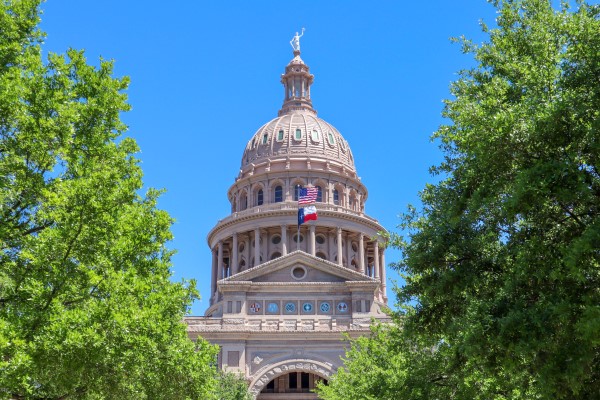Legislative Session Update: Week 11
Published Mar 22, 2019 by Taylor Landin
During the 86th Legislative Session, the Partnership will provide a weekly update on our top executive priorities and other newsworthy items from Austin.
Legislation related to the Partnership’s two executive priorities took significant steps forward this week. On Wednesday, the Senate unanimously passed Senate Bill 7 that creates the Texas Infrastructure Resiliency Fund. After passage of the bill, Lt. Governor Dan Patrick credited Senator Brandon Creighton (R-Conroe) for his leadership by stating, “I really do believe this is one of the most important bills this body has ever passed for the entire state of Texas and our future."
Concerning the Partnership’s other executive priority, school finance reform, the House Public Education Committee unanimously approved House Bill 3. The bill contains $9 billion in new state funding for education with a portion of those dollars directed to areas of high impact such as early childhood education.
PARTNERSHIP EXECUTIVE PRIORITIES
FLOOD RESILIENCE
On Monday, the House Natural Resources Committee heard House Bill 13, authored by Representative Dade Phelan (R-Beaumont). HB 13 appropriates $3.26 billion out of the Economic Stabilization Fund (ESF) to create a statewide flood infrastructure fund. The fund would provide financing options for local communities to construct flood mitigation projects to protect their residents, and call for cross-jurisdictional flood planning and an expedited process to get the funds on the ground as quickly as possible. The bill was passed unanimously out of committee.
As referenced above, the Senate moved forward on its Hurricane Harvey bill package. The Partnership has been primarily focused on Senate Bill 7, which creates the Texas Infrastructure Resiliency Fund, which provides state funding for future flood mitigation projects. The Senate supplemental budget contains $840 million in initial funding for the Texas Infrastructure Resiliency Fund. It is still to be determined how the House and Senate funding approaches will be reconciled. We will know more after House Bill 13 is voted on by the House.
SCHOOL FINANCE REFORM
This week the House Public Education Committee unanimously voted out House Bill 3, Chairman Huberty’s school finance reform legislation. Prior to the vote, Chairman Huberty offered a committee substitute for the bill that included changes for clarity but also in substance. Notably, the substitute removed a provision from the original legislation that dedicated funding to increase pay for teachers who are identified as high-performing and excel in improving student success. This provision was one of the Texas Commission on Public School Finance’s recommendations to the Legislature late last year but was subject to significant debate when the committee heard testimony on the bill. The substitute bill also excluded specific strategies to financially reward school districts whose students meet key academic proficiency milestones.
The Partnership, in coordination with Metro 8, a coalition of the eight largest metropolitan chambers in the state, sent a joint letter of support for HB 3 to Speaker Dennis Bonnen. We expressed our appreciation for the efforts of the House to include $9 billion in new funding directed toward equitably increasing the state’s share of funding public education and reducing the local burden of recapture. We expressed our support for the members of the House to consider including a provision that would allow school districts to develop a local teacher evaluation system and reward teachers who drive students' achievement. The bill is expected to be debated on the floor of the House during the first week of April.
WEEK IN REVIEW
Texas Public Information Act
House Bill 2189, by Representative Giovanni Capriglione (R-Southlake) was heard by the House State Affairs Committee on Wednesday. Representative Capriglione and Senator Kirk Watson (D-Austin) are determined to close many of the perceived loopholes in the Public Information Act laws they feel were opened by the Boeing v. Paxton and Greater Houston Partnership v. Paxton Texas Supreme Court rulings in 2015. The bill was left pending in committee. Although the Partnership no longer has any governmental contracts, and does not accept public funds, we are working closely with members of the Legislature, other chambers of commerce and economic development entities to craft consensus legislation which will protect our ability to promote the region, while providing the public access to government records. The Senate companion bill, Senate Bill 943, has not received committee hearing.
Economic Development – Chapter 312
Reauthorization of the Chapter 312 tax abatement program utilized by cities and counties took an important step forward on Wednesday. The House Ways & Means Committee heard House Bill 360 to reauthorize the program for 10 years. If the program is not reauthorized, it will expire in September. The Partnership, along with many other business and economic development organizations from across Texas registered in support of the bill, authored by Representative Jim Murphy (R-Houston). The committee also heard testimony on House Bill 2438, authored by Representative Dade Phelan, which would reauthorize both Chapter 312 and Chapter 313. Simultaneous reauthorization would provide much needed certainty for economic development in Texas.
Stay up-to-date with our Policy Team throughout the 86th Legislative Session by opting-in to this weekly update or follow the team on Twitter @GHP_Policy
 The Houston Report
The Houston Report


















